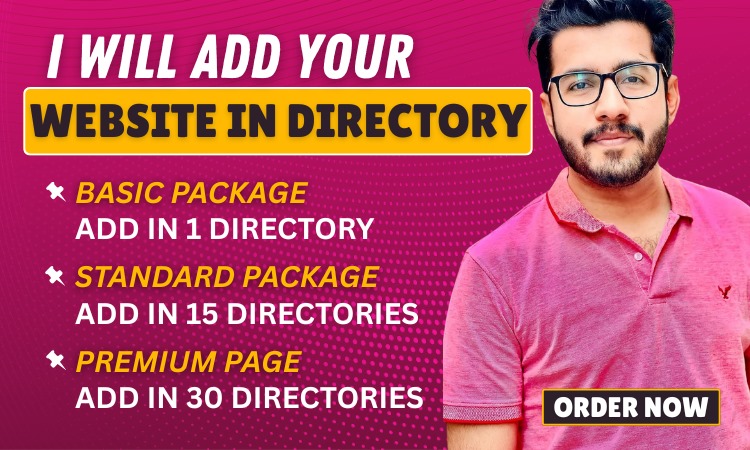In the modern world, where time is limited and demands are endless, creating a lifestyle that balances work, health, relationships, and personal fulfillment can feel overwhelming. Yet, a fulfilling lifestyle isn’t about perfection—it’s about intentionally crafting your days to support your values, nourish your well-being, and help you thrive.
This article will guide you through the key pillars of a balanced lifestyle, offering simple, sustainable strategies for living well every day—no matter how busy life gets.
1. Understanding Lifestyle: More Than Just Routine
Lifestyle is more than just what you do; it’s how you live and why you live that way. It’s the combination of your habits, values, mindset, and environment. A fulfilling lifestyle reflects what matters most to you and supports both your short-term happiness and long-term goals.
Instead of following trends or comparing your life to others, focus on creating a lifestyle that feels right for you—aligned with your purpose, energy, and priorities.
2. Health as the Foundation of a Fulfilling Lifestyle
Your physical and mental health are the cornerstones of a balanced life. Without well-being, it’s hard to enjoy or sustain any other aspect of your lifestyle.
Physical Wellness
- Eat mindfully: Nourish your body with whole foods—fruits, vegetables, proteins, healthy fats, and complex carbs. Avoid extreme diets and instead focus on balance.
- Move daily: Exercise doesn’t have to mean going to the gym. Walk, stretch, dance, or do yoga—just stay active.
- Prioritize sleep: Aim for 7–9 hours of quality rest. A good night’s sleep affects your mood, focus, and physical health.
- Hydrate: Drinking enough water can improve energy, skin, digestion, and more.
Mental Wellness
- Practice mindfulness: Just a few minutes of meditation or deep breathing can reduce stress and improve clarity.
- Manage stress: Recognize your stress triggers and respond with self-care—take breaks, say no, or talk to someone.
- Limit screen time: Constant notifications and scrolling can drain your focus and joy.
When you feel good physically and mentally, everything else flows more easily.
3. Designing Daily Routines That Support Balance
Routines help us make the most of our time and energy. They provide structure, reduce decision fatigue, and set the tone for a productive and peaceful day.
Morning Routine
Start the day with intention. Even a 30-minute routine can transform your mindset.
- Wake up at a consistent time
- Hydrate and stretch
- Spend a moment in gratitude or journaling
- Plan your top priorities
Evening Routine
Wind down to signal your body and mind it’s time to rest.
- Avoid screens 30–60 minutes before bed
- Reflect on the day—what went well, what to improve
- Prepare for the next day (clothes, meals, calendar)
Time Blocking & Breaks
Use time-blocking to assign chunks of time to tasks and schedule regular breaks to reset your focus. This improves productivity and helps prevent burnout.
4. Nurturing Meaningful Relationships
Healthy relationships are a key part of a fulfilling lifestyle. Humans are wired for connection, and strong social bonds improve happiness, resilience, and even longevity.
Invest in Quality Time
Spend time with people who uplift and inspire you. Make space for real conversations—not just texts or social media likes.
Set Boundaries
Protect your energy by setting boundaries with people who drain or disrespect you. Boundaries are not selfish—they’re essential for healthy connections.
Practice Empathy and Communication
Be present, listen actively, and express appreciation. Kindness and understanding go a long way in building lasting, meaningful relationships.
5. Creating a Purpose-Driven Life
Purpose adds meaning to your lifestyle. When your daily actions align with your deeper values or goals, life feels more fulfilling—even during challenges.
Identify Your Core Values
Ask yourself:
- What truly matters to me?
- What kind of impact do I want to have?
- How do I want to feel each day?
Use these answers to guide your choices—from your job and hobbies to the people you surround yourself with.
Set Personal Goals
Create short-term and long-term goals that align with your vision. Break them into small, achievable steps. Celebrate progress, not just outcomes.
6. Simplifying Your Environment and Schedule
Sometimes, our environment and commitments can add unnecessary stress or clutter to our lives. Simplifying helps create space—mentally and physically—for what truly matters.
Declutter Your Space
A tidy space promotes a calm mind. Start with one area—like your desk or wardrobe—and keep only what adds value or joy.
Evaluate Commitments
Not all “yes” answers serve you. Say no to tasks or obligations that don’t align with your goals. Free up your time for what’s truly important.
Embrace Minimalism (if it suits you)
Minimalism isn’t about having nothing—it’s about making room for what matters most. This can apply to your possessions, schedule, or even digital life.
7. Digital Balance in a Hyperconnected World
Technology is a powerful tool, but it can also become a source of distraction, anxiety, or burnout if not managed mindfully.
Limit Mindless Scrolling
Set time limits on social apps. Be intentional about your screen time and unfollow accounts that don’t bring value or positivity.
Create Tech-Free Zones
Designate areas or times where phones are off-limits—like during meals, in the bedroom, or on morning walks.
Use Tech to Enhance, Not Escape
Leverage apps that support your lifestyle (like meditation, habit tracking, or fitness), but don’t let tech replace real-life experiences and relationships.
8. Creativity and Hobbies: Fuel for the Soul
A fulfilling lifestyle isn’t just about work and productivity. Hobbies, play, and creative expression are essential for joy and emotional well-being.
Rediscover What You Love
Whether it’s painting, gardening, playing music, or learning a new skill—make time for activities that light you up.
Schedule Fun
Don’t leave fun to chance. Plan it like you would a meeting or errand. Even 20 minutes of a hobby a day can reduce stress and boost happiness.
Try Something New
Challenge your brain and spark curiosity with a new class, experience, or adventure. Growth often happens outside your comfort zone.
9. Financial Wellness as a Lifestyle Factor
Money affects your choices, freedom, and peace of mind. A healthy lifestyle includes financial literacy and planning.
Budget Mindfully
Track income and expenses. Know where your money goes and make adjustments to support your goals and values.
Save and Invest
Build an emergency fund, contribute to savings, and learn about investing—even small steps today can lead to big results tomorrow.
Avoid Comparison
Social media can distort reality. Focus on your own financial journey and define what “wealth” or “success” looks like for you.
10. Self-Care and Self-Compassion
At the heart of a fulfilling lifestyle is the relationship you have with yourself.
Treat Yourself with Kindness
Forgive mistakes, speak to yourself with encouragement, and allow yourself to rest or slow down when needed.
Protect Your Peace
Your time, energy, and mental space are sacred. Prioritize self-care without guilt. Say no, unplug, or take a mental health day.
Celebrate Wins—Big or Small
Every step forward counts. Acknowledge your growth and resilience as you build your ideal lifestyle.
Conclusion: Your Lifestyle, Your Design
Living a fulfilling lifestyle isn’t about copying someone else’s routine or striving for perfection. It’s about intentional choices, authentic values, and building habits that support your well-being in a way that works for you.
Whether you’re just beginning or refining your path, remember: small, consistent actions lead to big transformations. By focusing on your health, routines, relationships, environment, purpose, and self-care, you can create a life that not only looks good—but feels deeply satisfying.
You don’t need to wait for the perfect time or the perfect plan. Start with one change today, and begin living well—every single day.


